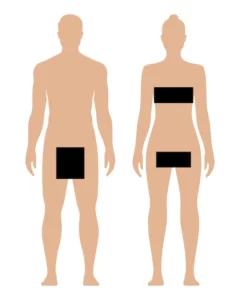
Introduction: Healthy, radiant skin is a reflection of good overall health and well-being. Skincare is a vital part of maintaining a youthful appearance and preventing common skin issues. In this comprehensive guide, we’ll explore the fundamentals of skincare, how to look after your skin, and how to treat common skin conditions.
Section 1: Skincare Basics
1.1: Understanding your skin type Knowing your skin type is essential to developing an effective skincare routine. The four primary skin types are:
- Normal: Balanced oil and moisture levels, few breakouts or blemishes
- Dry: Tight, flaky, or dull, often with visible fine lines and wrinkles
- Oily: Shiny appearance, enlarged pores, prone to acne and breakouts
- Combination: A mix of dry and oily areas, typically an oily T-zone (forehead, nose, and chin) with normal or dry cheeks
1.2: Developing a daily skincare routine A well-rounded skincare routine generally consists of three main steps: cleansing, toning, and moisturizing.
- Cleansing: Gently wash your face with a cleanser suited to your skin type to remove dirt, makeup, and excess oil.
- Toning: Apply a toner to help balance your skin’s pH and prepare it for moisturizing.
- Moisturizing: Hydrate your skin with a moisturizer that matches your skin type to seal in moisture and maintain a healthy skin barrier.
Section 2: How to Look After Your Skin
2.1: Sun protection Sun damage is a leading cause of premature aging and skin cancer. Protect your skin by:
- Wearing broad-spectrum sunscreen with an SPF of 30 or higher daily
- Seeking shade when the sun is strongest (10 a.m. to 4 p.m.)
- Wearing protective clothing, sunglasses, and wide-brimmed hats
2.2: Healthy lifestyle habits A healthy lifestyle can significantly impact your skin’s health. Maintain a balanced diet, stay hydrated, exercise regularly, and get enough sleep.
2.3: Exfoliation Exfoliate your skin 1-2 times per week to remove dead skin cells and reveal smoother, brighter skin. Choose a gentle exfoliator based on your skin type and avoid over-exfoliation, which can damage the skin.
2.4: Professional treatments Consider professional treatments such as facials, chemical peels, or microdermabrasion to address specific skincare concerns and maintain overall skin health.
Section 3: Common Skin Conditions and Treatments
3.1: Acne Acne is caused by clogged pores, excess oil, and bacteria. Treatments include:
- Topical treatments containing benzoyl peroxide or salicylic acid
- Oral medications like antibiotics, birth control pills, or isotretinoin for severe cases
- Professional treatments such as chemical peels or laser therapy
3.2: Eczema Eczema is characterized by itchy, red, and inflamed patches of skin. Management strategies include:
- Regular moisturizing with fragrance-free products
- Topical corticosteroids for flare-ups
- Identifying and avoiding triggers such as allergens or irritants
3.3: Psoriasis Psoriasis is an autoimmune condition that results in scaly, red, and inflamed patches on the skin. Treatments include:
- Topical treatments like corticosteroids or retinoids
- Phototherapy using ultraviolet light
- Systemic medications for severe cases
3.4: Rosacea Rosacea is a chronic skin condition that causes facial redness, visible blood vessels, and sometimes pimple-like bumps. Treatment options include:
- Gentle skincare products to minimize irritation
- Topical treatments such as metronidazole, azelaic acid, or ivermectin
- Oral medications like antibiotics for more severe cases
- Laser or light-based therapies to reduce redness and visible blood vessels
3.5: Hyperpigmentation Hyperpigmentation refers to dark spots or patches on the skin caused by excess melanin production. Treatments include:
- Topical treatments with ingredients like hydroquinone, kojic acid, or glycolic acid
- Over-the-counter or prescription retinoids
- Chemical peels, microdermabrasion, or laser therapy
Conclusion: Skincare plays a crucial role in maintaining the health and appearance of your skin. By understanding your skin type, developing a daily routine, and protecting your skin from the sun, you can maintain a healthy complexion. When faced with common skin conditions, it’s essential to seek appropriate treatments and consult a dermatologist for personalized advice. With a consistent skincare regimen and healthy lifestyle habits, you can achieve and maintain radiant, youthful skin.







